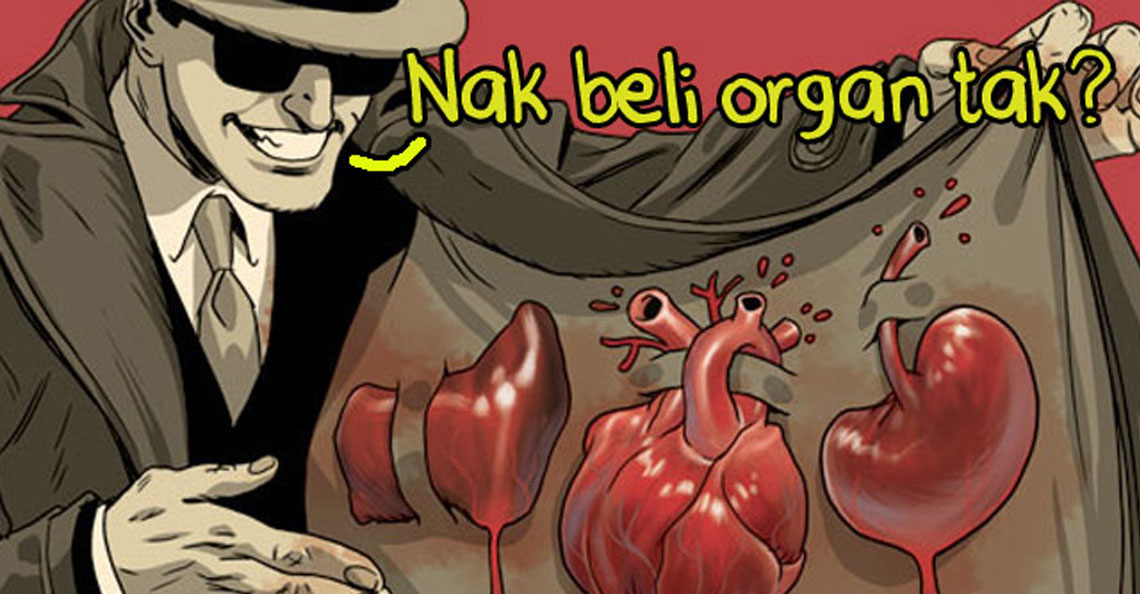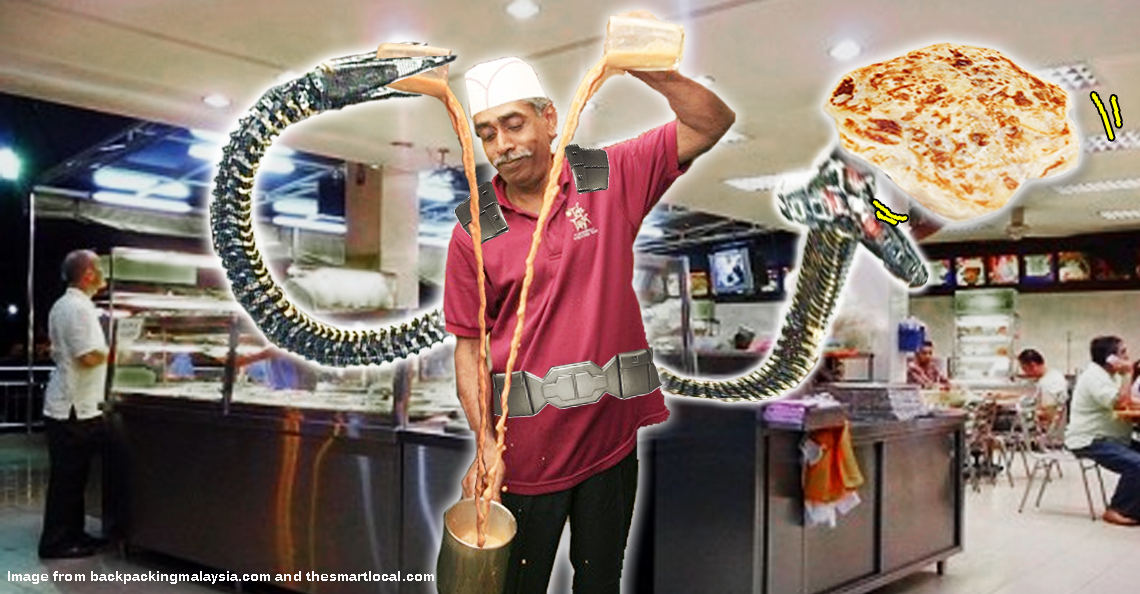The touching story of how this Malaysian girl came back to her parents in another body
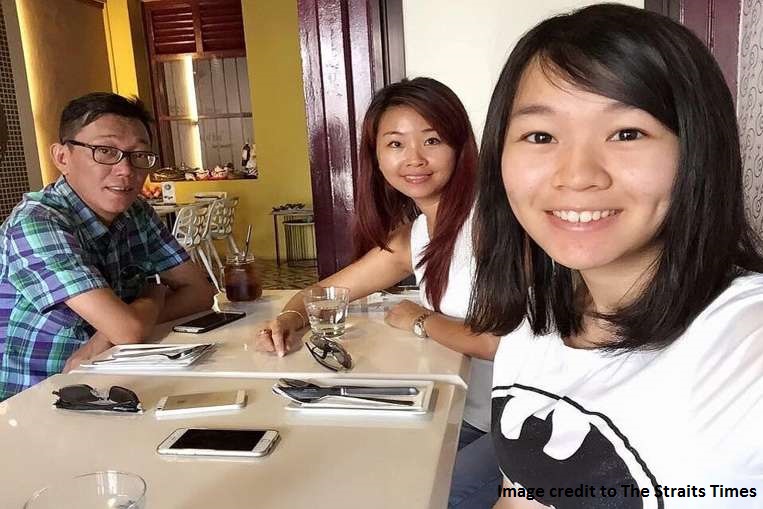
- 3.3KShares
- Facebook3.2K
- Twitter6
- LinkedIn21
- Email31
- WhatsApp98
Back in 2015, there was a story of a Malaysian girl who made headlines in Malaysia and Singapore.
Carmen Mark, then 18 years old, has always loved helping people since she was a child. Friends and family often describe her as a sweet girl who was generous and wanted to help with the smallest things, like giving some of her allowance to a friend who couldn’t afford food.
When she was 16, her parents had pledged to become organ donors, and Carmen was very eager to sign up too but she needed the consent of her parents.
After graduating from Penang Chinese Girls’ High School with 8As for her SPM, 18 year old Carmen was on her way to helping more people the way she can, when she got a scholarship to study nursing at Nanyang Polytechnic in Singapore.
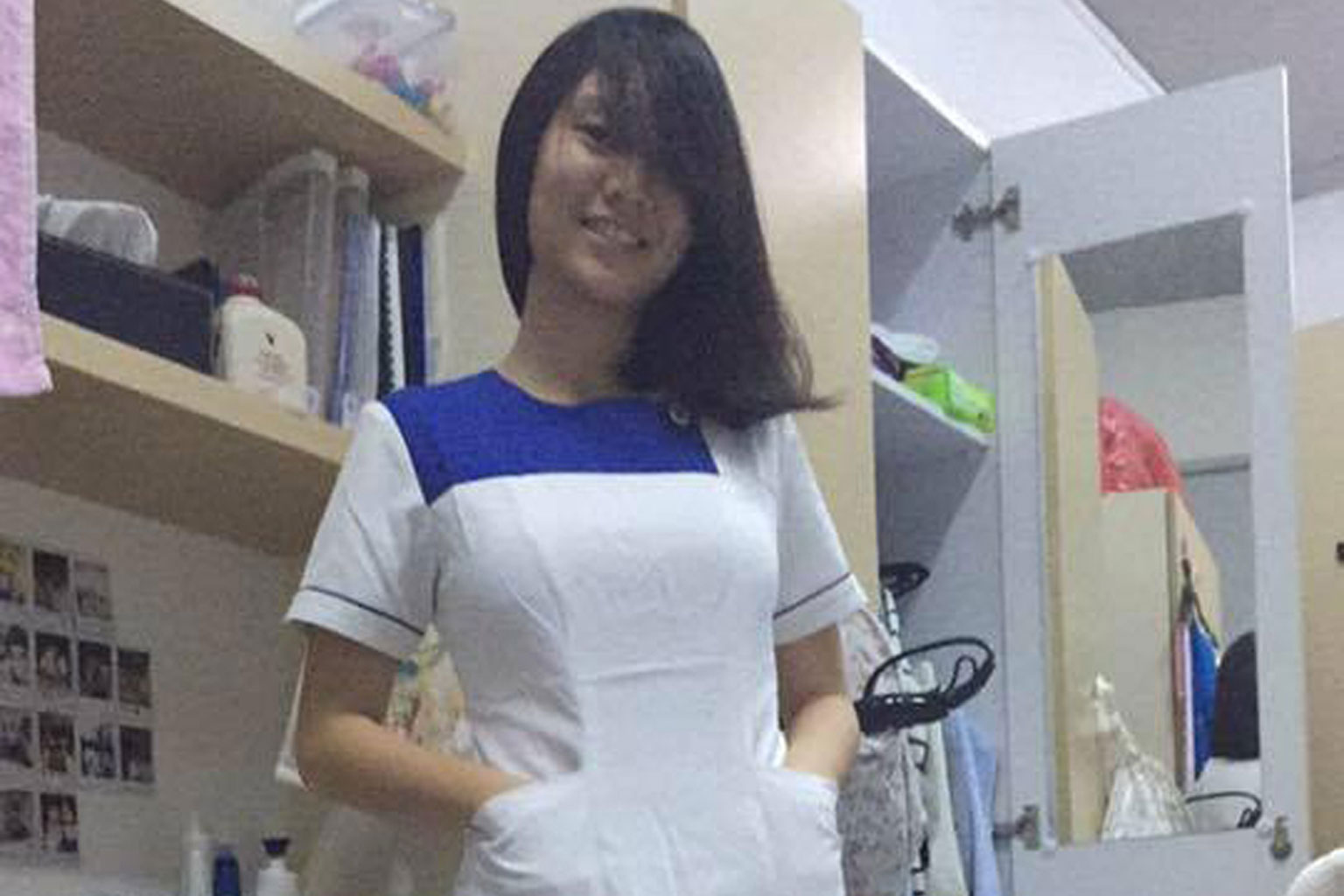
A few months into her course on 3 July 2015, while eating lunch at school, she suddenly collapsed.
When she was brought into the hospital, they found that her arteriovenous malformation (AVM), which are basically abnormally thin blood vessels in her brain, had ruptured. It is considered a rare disorder that only affects only 1% of the general population, and only 1% of those who have AVM suffer any rupture.
While her parents and boyfriend were on their way to see her, Carmen was in a coma in the intensive care unit for 10 days. She started to improve and got out of the ICU. Even though still in a coma, she could respond semi-consciously to her father.
“She likes dogs, so I told her that if she wants a husky, she should squeeze my hand, and she did,” – Mark Kok Wah, Carmen’s father, quoted in The Straits Times.
On 28 July 2015, 25 days after her collapse, Carmen suddenly had a seizure. She was rushed back into the ICU but never woke again. She was declared brain dead.

To fulfill her final wish, Carmen’s parents allowed their daughter’s organ to be donated. Despite Carmen’s grandmother objecting the decision, they signed the consent anyway.
Carmen’s organs, including her heart, liver, kidneys and pancreas were donated to eight recipients, including one patient who had waited 11 years for a new kidney. Carmen’s remains were brought back to Penang for her funeral, before she was cremated and had she ash scattered at sea.
“I could not fulfil her dream of becoming a nurse but at least I could fulfil her wish. I find relief in knowing that even in death, she has managed to save eight lives in Singapore.” – Mark Kok Wah, Carmen’s father, quoted in The Star.

But the story doesn’t end there…
Serene Lee is a 35 year old Singaporean mother who started having breathing difficulties. She became short of breath even from the simplest things like walking. In 2011, she was diagnosed with dilated cardiomyopathy, a heritable disease that weakens the heart to pump blood for the body.
By 2012, her condition worsen to the point that she had to quit her job, and was frequently sent to the hospital, even until she had to go into ICU.
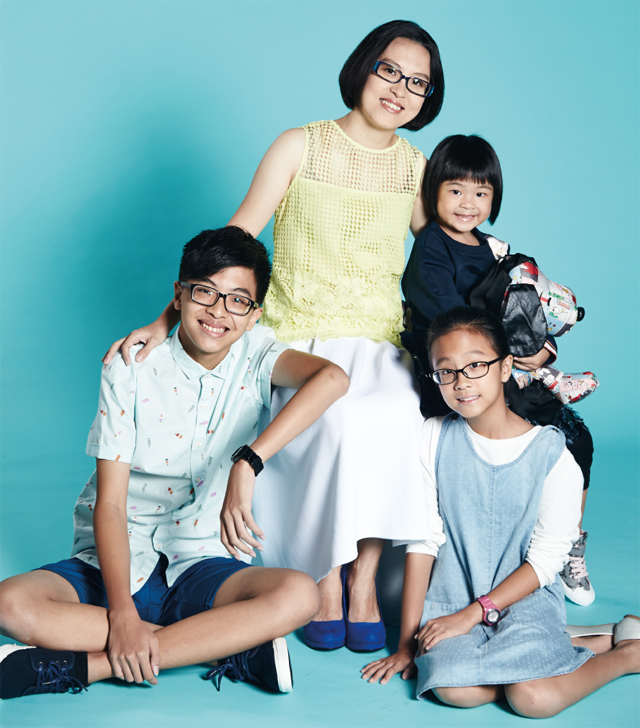
All this can be solved with a heart transplant, but there were none available at the time, so she had to install a left ventricular assist device (LVAD) inside her chest. A LVAD is a mechanical heart pump that runs on batteries to keep her heart pumping. She had to make sure that her LVAD was connected to the batteries, or she could die!
“I had to adjust to the idea of living with a cable coming out of me. There are also physical hassles, such as the daily wound cleaning and the need to carry nearly 2 kg of external parts, including a spare battery, everywhere I go.” – Serene Lee, quoted in Healthxchange.sg
Since she was fitted with the LVAD, Serene helped form the first LVAD support group at the National Heart Center in Singapore in 2014, and became its chairwoman a year later.
Then a call came in 2015, when a heart was found for her.
When the transplant was done, Serene read the news about a Malaysian girl who had donated her organs. Although it was standard procedure to not let the recipient know where their organs came from, as the chairperson of the heart patients support group, she eventually connected the dots that her new heart was Carmen’s.
Serene managed to track down Carmen’s parents and followed her father on Facebook. For 2 years, she cried every time she read about him wanting to hear her daughter’s heartbeat. Then in August 2017, Serene decided to send him a message.
“Dear Mr Mark,
Firstly, I am sorry that I had been looking at your Facebook posts since Aug 2015. And twice you posted that you wish to hear your daughter’s heartbeat. How much I wanted to tell you: here I am. I will fly over to Penang to let you hear.
Yes I am Serene, the heart recipient from Carmen your daughter. Since Aug 2015 I have been looking at your Facebook posts. It made me cry to see how much you miss her. I think partly because, of all organs, I took her heart!! And so it was really emotional for me. I even promised this heart that I will bring her home (to Penang) every year. Which I did in 2016, and I finally had peace. However you posted twice about wanting to hear Carmen’s heart beat and I really can’t take it any longer. I had no peace until I told myself I needed to contact you. As you know I am not allowed to contact you. But I decided to do it! Two years have passed and it’s really tugging at this heart of your daughter. I don’t know how to express it but I’m very sure she misses you. If not, why (could I find) no peace until I stepped into Penang last year. I even went to Komtar (a large shopping mall in Penang) because you posted on Facebook that you had a job there.
Now the ball is in your court. If you are willing and ready to see me, and hear her heart beat, I will fly over this September. I will bring a stethoscope to let you hear (Carmen’s heartbeat). If you are willing I would like to also say my thanks to her. I had been walking the National Heart Center (NHCS) wards way before I had a heart transplant. I am in charge of the patient support group for heart failure patients at NHCS.” – The message Serene Lee sent to Carmen’s father, quoted in The Straits Times.
And so a meeting was arranged for Serene to meet Carmen’s parents. They met in Penang on 15 September, 2017, in the presence of Penang chief minister Lim Guan Eng.
Also present at the meeting was Carmen’s grandmother who was against Carmen’s donation, but had a change of heart after seeing the impact of Carmen giving away her heart.
“All my friends had been telling me that (organ donation) is a good thing. But at the time, I could not let go while my own heart ached for her, although Carmen had told her father when she was still alive that she wanted to donate her organs. Now, my son tells me that he will do the same, and I won’t stop him,” – Lee Siew Ngor, Carmen’s grandmother, quoted in The Malaysian Insight.
Serene stayed with her ‘parents’ for a few days, meeting friends and people Carmen knew in her life, and even visited the spot where Carmen’s ashes were scattered.
So this sad story had a happy ending.

…but the real sad story is that this happy ending is one in a million
In a previous CILISOS article about organ donations in Malaysia, we talked about some of the challenges faced by organ donations. Malaysia still has one of the lowest rate of organ donors in the world, at literally at 1.0 per million population (PMP), or only 1.3% of 30 million Malaysians in 2017.
According to the National Transplant Resource Center (NTRC), Malaysians still see organ donations as taboo, and don’t want to be organ donors for cultural and religious reasons. And even when religions give their blessing to do organ donation (like Islam), there are still many questions being asked about organ donations:
“Religion is not an issue, because I understand that my religion doesn’t oppose it. In fact, it is encouraged because it is considered a very good deed. But I’m more worried about the funeral arrangements, because in Islam, we believe that the earlier one’s body is buried after death, the better. How soon will people come to harvest the organs? Will they delay the burial process? These are just a few of the many questions I have about organ donation,” – Yusuf Abu Bakar, school assistant administrator, quoted in The Star.
Things get even worse when the media is also seen as being part of the reason for why few people pledge to be organ donors, with horror stories about organ farms making people feel even more jittery, even though they are found to be false.
To encourage more people to pledge as organ donors, the NTRC has been holding annual drives to get more pledges, while also demystifying some wrong perceptions people have about organ donations, like it’s alright for a non-Muslim’s organ to end up in the body of a Muslim.
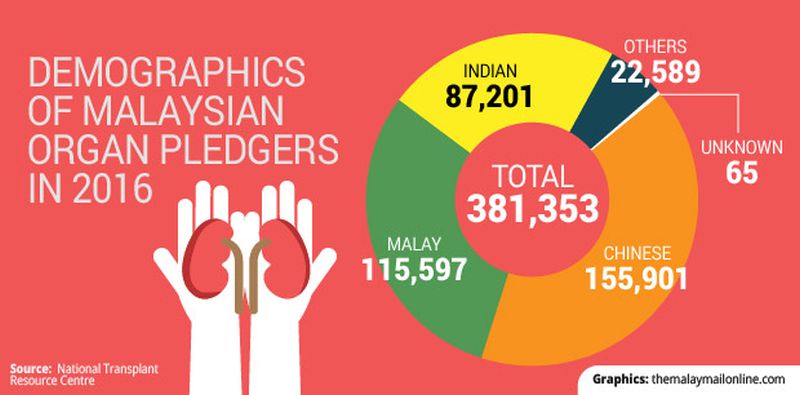
Even though the number of people who pledged to be organ donors has been on the rise since 2014, the number of donations being made upon death has actually been dropping sharply over the years.
The Health Ministry has reported while that are more than 400,000 Malaysians who have pledged to donate their organs when they die as of October 2017, but there were less than 130 donations made from 2015 to 2017. This is not very encouraging when the number of patients who need donations was recorded to be more than 20,000 (for kidney, liver, heart and lungs) in 2017.
This is because there is another thing that people need to know about being an organ donor. When you die as an organ donor, your family still has the final say to let your organ be donated.
“Most of the time, family members (are not aware about the arrangement), so the funeral is conducted as usual. Moreover, in Malaysia, family members of the deceased still have a say over whether their organs can be donated or not.
Hence, the reason why there is a huge gap between pledgers and actual organ donors,” – Dr Zahari Noor, Penang Transplant Resource Center chairman, quoted in New Straits Times.
That is why stories like Carmen are important to change the perception about organ donations. Hers and other stories of organ donors are trying to change perception that not only do successful organ donations can help to save lives, it could even leave behind a legacy for the donors.
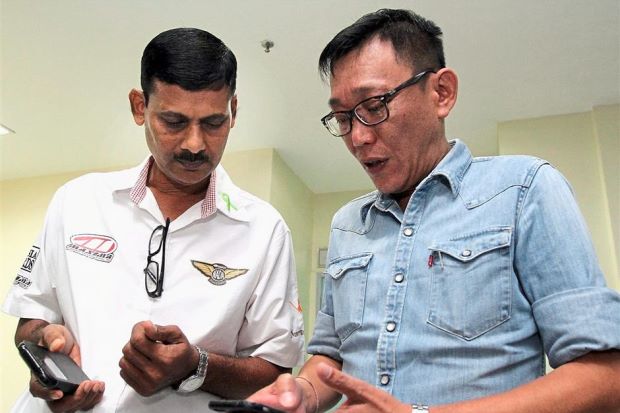
As for Carmen’s parents, they are forming a foundation in Carmen’s name and are currently planning to make a movie of their daughter’s story, so that one day maybe more Malaysians will have more stories like Carmen’s.
“I hope that by coming forward, it can create impact and change people’s mindsets about the gift of life. The taboo among Asians on organ donation is hindering many lives from being saved.” – Mark Kok Wah, quoted in The Straits Times.
So if you are inspired to be an organ donor (and don’t forget to inform your family!), there are several ways you can do so at the National Transplant Resource Center.
- 3.3KShares
- Facebook3.2K
- Twitter6
- LinkedIn21
- Email31
- WhatsApp98

